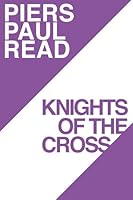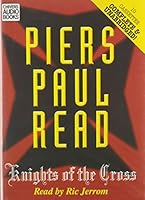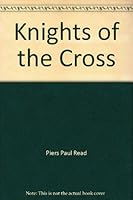- Welcome to FictionDB, Guest
- | My Account
- | Help

Knights of the Cross — Piers Paul Read
buy the book from amazon
Paperback editions:
Hardcover editions:
eBook editions:
Audio editions:
Large Print editions:
Description
Then Harding's body is found floating in the River Saar with marks that suggest some sadomasochistic orgy. Taylor, the Eurosceptic editor, suspects that he may have been murdered by a secret freemasonry of fanatic Europhiles â€" the aristocratic Catholic Knights of the Cross. The Knights run a charity that assists Catholics from the former Soviet Union, and Taylor asks Latham to infiltrate the organisation posing as a priest from a remote parish in Siberia. Bored with his life at Caversham, and attracted by a substantial fee, Latham accepts the offer. At Schloss Zelden, he meets the son and two very different daughters of his host, the Grand Master of the Knights of the Cross. He falls in love with the younger daughter, Monika, and discovers the truth about Harding's death from her sister Babi who was Harding's lover. However, imperceptibly Lambert is affected by playing the role of a priest. He returns to London a changed man.
‘Story-telling in the so-called serious novel is said to be a dying art these days; it is triumphantly alive and kicking in this novel.'
Spectator
‘Extremely well written, this is a subtle, highly intelligent novel, enlivened with a dry, sardonic humour.'
Evening Standard
‘Exceedingly clever new thriller…audacious and fast-moving.'
Literary Review
‘An intelligent, compelling Eurothriller.'
Time Out
‘Its intelligence is undoubted and its characterisation magnificent. This is a superior work of fiction at every level.'
Sunday Telegraph
‘A man who at the very least has written three or four of the most distinctive and sharply written English novels of the whole post-war period… an account of spiritual awakening that reads like the paciest of spy thrillers.'
Mail on Sunday
‘Read…forces us to think and to feel. He is a very considerable novelist, far better and far more serious than many who receive fashionable attention. This book leaves most novels published this year floundering in its wake. It is serious, uncomfortable, but also continuously entertaining. What more can you ask for?'
Scotsman
In 1988 I become a trustee of the British branch of an international Catholic charity which had its headquarters in Germany, Aid to the Church in Need. A number of my fellow trustees were Knights of Malta. I also had friends among Eurosceptic British journalists and politicians. And my older brother Tom was General Manager of the monitoring service at Caversham, jointly run by the BBC World Service and the CIA.
From these strands of experience was woven a satirical thriller, Knights of the Cross. Some Catholic friends were upset by the insouciance with which my hero, Michael Lambert, masquerades as a Catholic priest â€" saying mass, distributing holy communion, and hearing the confessions. However, as some reviewers recognised, the inner conversion of my hero was the sub-text of an otherwise heavily plotted novel.
CERTAIN CONTENT THAT APPEARS ON THIS PAGE COMES FROM AMAZON. THIS CONTENT IS PROVIDED ‘AS IS’ AND IS SUBJECT TO CHANGE OR REMOVAL AT ANY TIME.



 Amazon UK
Amazon UK